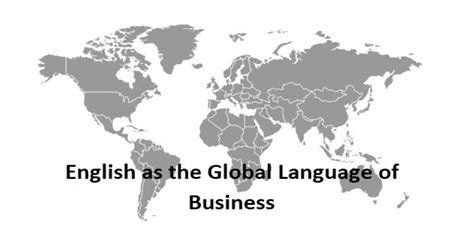In today’s increasingly interconnected global economy, the role of a business analyst has evolved to encompass a wide range of responsibilities pertaining to international business. As businesses continue to expand and operate on a global scale, it has become essential for business analysts to develop cross-cultural communication skills, gain expertise in global market analysis, and learn the nuances of international business etiquette. Moreover, acquiring proficiency in foreign languages, mastering multicultural project management, and adapting to varied regulatory frameworks are all integral aspects of becoming a successful international business analyst. Navigating differences in business customs and traditions, leveraging technology for global collaboration, and building a network of international business contacts are also crucial for thriving in this dynamic field. This blog will delve into the various facets of becoming an international business analyst and provide insights into the skills and knowledge necessary to excel in this role.
Table of Contents
Understanding the role of a business analyst
Business analyst is a professional who is responsible for identifying the needs of a business and finding solutions to address them. They analyze the processes, structure, and systems of a company in order to provide recommendations for improvement. This role requires a deep understanding of the industry, market trends, and business operations.
Business analysts play a crucial role in bridging the gap between the business and the technology teams. They act as a liaison, translating the business requirements into technical specifications for the development team to implement. This requires strong communication skills and the ability to collaborate with various stakeholders.
One of the key responsibilities of a business analyst is to conduct thorough research and data analysis. They gather information from various sources, including market reports, customer feedback, and industry trends, in order to make informed recommendations for the business. This requires a keen eye for detail and the ability to identify patterns and trends in large volumes of data.
In addition to their analytical and technical skills, business analysts also need to possess strong problem-solving abilities. They need to be able to identify the root cause of a business issue and propose effective solutions. This requires critical thinking and the ability to think outside the box in order to come up with innovative ideas.
Developing cross-cultural communication skills
When it comes to developing cross-cultural communication skills, it is essential to understand the nuances of various cultures and how they impact communication styles. People from different cultural backgrounds may have different non-verbal cues, verbal expressions, and ways of conveying their thoughts and emotions. It is important to be aware of these differences and develop the ability to effectively communicate with individuals from diverse cultural backgrounds.
One way to develop cross-cultural communication skills is to immerse oneself in different cultures. This could involve travel, living abroad, or even engaging in cultural exchange programs. By exposing oneself to different cultural contexts, individuals can gain a deeper understanding of the customs, values, and communication norms of various cultures.
Additionally, developing cross-cultural communication skills requires active listening and empathy. It is important to truly listen to and understand the perspectives of individuals from different cultures, and to empathize with their experiences and points of view. This can help bridge the communication gap and foster meaningful connections across cultural boundaries.
Finally, honing cross-cultural communication skills also involves ongoing learning and adaptability. As cultures and communication norms are constantly evolving, it is crucial to stay informed and open to new ways of interacting and collaborating with individuals from different cultural backgrounds.
Gaining expertise in global market analysis
Understanding the dynamics of global market analysis is crucial for businesses looking to expand their operations internationally. By gaining expertise in this area, companies can make informed decisions about entering new markets, understanding consumer behavior, and identifying potential opportunities for growth.
Developing a deep understanding of the global market requires an in-depth knowledge of economic and cultural factors that can impact business operations. It involves analyzing market trends, consumer preferences, and competitive landscapes across different regions and countries.
Furthermore, gaining expertise in global market analysis also involves staying updated with the latest industry developments, technological advancements, and geopolitical factors that can influence the global market. This requires continuous learning, networking with industry experts, and leveraging various resources to gather valuable insights.
Businesses that prioritize gaining expertise in global market analysis are better equipped to make strategic decisions, mitigate risks, and seize opportunities in the highly competitive global marketplace.
Learning the nuances of international business etiquette
Understanding the importance of international business etiquette is crucial for any professional looking to thrive in a global market. In today’s interconnected world, having cross-cultural communication skills and knowledge of business customs and traditions is essential for success in international business. It goes beyond simply knowing how to greet someone in another country; it involves understanding the cultural norms, gestures, and protocols that can vary significantly from one culture to another.
Acquiring proficiency in foreign languages can greatly enhance one’s ability to navigate international business etiquette. Language is a key component of etiquette, as it can affect communication, tone, and overall message. It is important to not only be able to speak a foreign language but also to understand the nuances and subtleties that come with it, such as formal vs. informal language, and proper greetings and goodbyes.
Mastering multicultural project management also plays a significant role in understanding international business etiquette. It involves being aware of differing work styles, communication methods, and decision-making processes in various cultures. Being able to adapt to these differences while maintaining professionalism and respect is essential in building successful international business relationships.
Overall, learning the nuances of international business etiquette requires a combination of knowledge, empathy, and adaptability. It is not just about following a set of rules, but about understanding and appreciating the cultural differences that make up the global business landscape.
Acquiring proficiency in foreign languages
Acquiring proficiency in foreign languages is a valuable skill for individuals seeking to succeed in the global business landscape. The ability to communicate effectively in multiple languages opens up countless opportunities for collaboration, negotiation, and relationship-building with international partners and clients.
Furthermore, fluency in foreign languages demonstrates cultural sensitivity and awareness, which are essential qualities for navigating the nuances of international business etiquette. Whether it’s mastering Mandarin for business dealings in China or becoming proficient in Spanish for partnerships in South America, the ability to speak a foreign language can greatly enhance one’s professional capabilities.
With the increasing interconnectedness of the global economy, the demand for professionals who are multilingual continues to rise. Companies are seeking employees who can easily engage with diverse stakeholders and bridge language gaps to facilitate successful business transactions. Therefore, investing time and effort into acquiring proficiency in foreign languages is not only personally enriching but also a strategic career move.
Overall, by mastering a foreign language, individuals can gain a competitive edge in the international business arena, foster stronger relationships with global counterparts, and demonstrate their commitment to cross-cultural communication and understanding.
Mastering multicultural project management
Mastering multicultural project management is essential for businesses operating in a globalized world. In today’s interconnected marketplace, companies often have teams spread across different countries, each with their own cultural norms and communication styles. It’s crucial for project managers to understand and navigate these cultural differences to ensure successful project outcomes.
One key aspect of multicultural project management is developing a high level of cross-cultural communication skills. This involves being able to effectively communicate and collaborate with team members from diverse backgrounds. It also means being sensitive to cultural nuances in communication, such as differing attitudes towards hierarchy and indirect communication styles.
In addition to communication skills, mastering multicultural project management also requires a deep understanding of international business etiquette. This involves knowing how to conduct meetings, negotiate contracts, and build relationships in a way that respects and aligns with the cultural expectations of the parties involved.
Furthermore, leveraging technology for global collaboration is an important aspect of multicultural project management. Project managers need to be well-versed in using tools and platforms that enable seamless communication and collaboration across borders, including video conferencing, project management software, and instant messaging apps.
Adapting to varied regulatory frameworks
When it comes to conducting business on a global scale, one of the key challenges that organizations face is navigating through varied regulatory frameworks. Adapting to varied regulatory frameworks requires a deep understanding of the legal and compliance requirements in different countries and regions. Businesses must be proactive in staying updated with the latest changes in regulations and be prepared to modify their operations accordingly to ensure compliance.
Moreover, adapting to varied regulatory frameworks also involves building strong relationships with legal experts and consultants who can provide guidance and support in understanding and complying with the diverse regulations. This is essential for businesses to avoid potential legal risks and penalties which can significantly impact their global operations.
Furthermore, organizations need to invest in comprehensive training programs to ensure that their employees are well-versed with the different regulatory requirements they need to adhere to. This can involve educating their workforce on a range of topics including data privacy laws, environmental regulations, labor laws, and industry-specific regulatory standards.
In conclusion, adapting to varied regulatory frameworks is an essential aspect of conducting business in the global marketplace. It requires a proactive approach, investment in expertise, and commitment to compliance in order to navigate through the complexities of diverse regulatory environments.
Navigating differences in business customs and traditions
When conducting business on a global scale, it is essential to navigate the differences in business customs and traditions. Each country and culture has its own unique way of approaching business interactions, and it is crucial for international business professionals to be aware of and respectful towards these differences. Whether it’s understanding the importance of exchanging business cards in Japan or the significance of personal connections in Latin America, being aware of these nuances can make or break a business deal.
One way to effectively navigate these differences is by conducting thorough research on the country or culture you will be interacting with. This includes understanding the gestures, body language, and communication styles that are considered respectful and appropriate. By gaining insight into these customs and traditions, you can ensure that your business interactions are conducted with sensitivity and awareness.
Another important aspect of navigating differences in business customs and traditions is education and adaptation. This may involve participating in cross-cultural training programs or working with local consultants who can provide guidance on proper etiquette and behavior. By being open to learning and adapting to the customs of the culture you are engaging with, you can build stronger and more meaningful business relationships.
In conclusion, navigating differences in business customs and traditions is an essential skill for anyone engaging in international business. By being respectful and sensitive to the customs and traditions of other cultures, individuals can build successful and beneficial business relationships that can lead to long-term success in the global marketplace.
Leveraging technology for global collaboration
Advancements in technology have revolutionized the way businesses operate on a global scale. With the rise of digital communication tools, companies now have the ability to collaborate with partners and clients from all corners of the world, transcending geographical barriers.
One of the key benefits of leveraging technology for global collaboration is the ability to conduct virtual meetings and conferences. Video conferencing platforms such as Zoom, Skype, and Microsoft Teams allow teams to connect in real-time, regardless of their physical location. This not only saves time and money on travel expenses but also facilitates seamless communication and collaboration.
Furthermore, cloud-based project management tools such as Asana, Trello, and Slack enable teams to work together on projects in a centralized and accessible manner. These tools provide a platform for streamlining tasks, setting deadlines, and sharing files, ensuring that everyone is on the same page despite being located in different parts of the world.
In addition, leveraging technology for global collaboration also opens up opportunities for cross-cultural communication and knowledge sharing. Through online platforms and forums, individuals from diverse backgrounds can connect and exchange ideas, experiences, and best practices, ultimately leading to enhanced collaboration and innovation.
Building a network of international business contacts
Building a network of international business contacts is essential for anyone looking to expand their reach in the global market. It involves establishing connections with individuals and organizations from different countries and cultures in order to facilitate business opportunities and collaborations.
One of the key steps in building a network of international business contacts is to participate in industry events and conferences that attract a diverse group of professionals. These events provide a platform for networking and offer the opportunity to meet potential partners and clients from around the world.
Another important aspect of building a network of international business contacts is leveraging technology for communication and collaboration. With the advancement of digital tools and platforms, it has become easier to connect with people from different parts of the world and maintain relationships through virtual means.
Furthermore, engaging in cross-cultural communication and understanding the nuances of international business etiquette is crucial when building a network of international business contacts. It’s important to be mindful of cultural differences and to adapt your communication style and behavior accordingly in order to establish and maintain successful business relationships.





